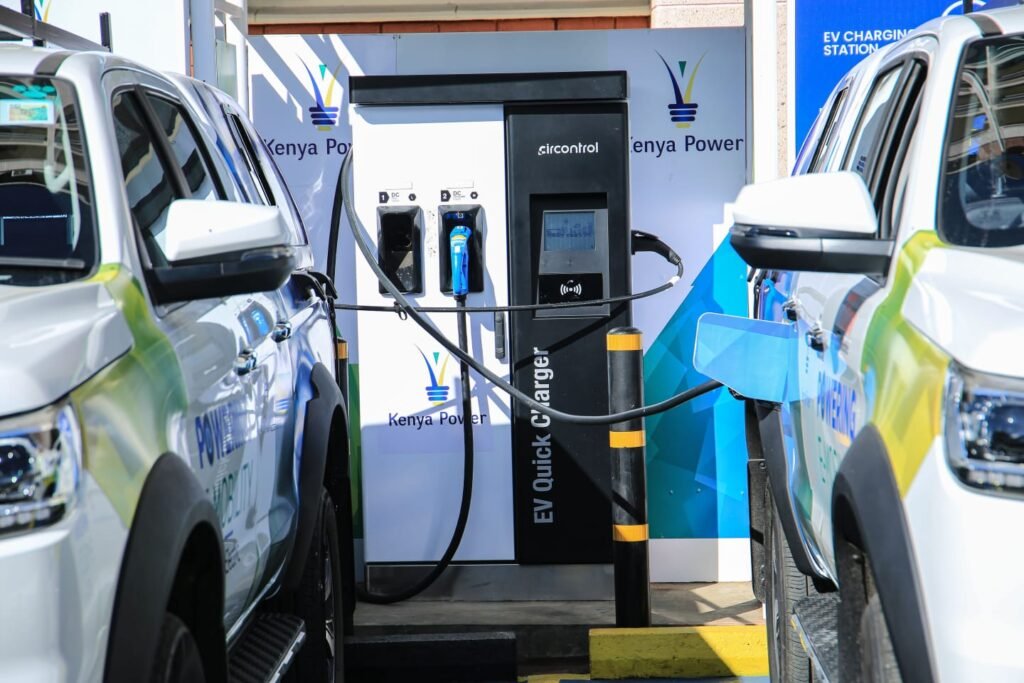Kenya’s electric vehicle (EV) landscape is set for a major transformation as the country’s sole electricity distributor, Kenya Power, prepares to roll out 45 new charging stations across a number of strategic counties.
The ambitious infrastructure project, targeting Nairobi, Mombasa, Kisumu, Nakuru, Nyeri, Eldoret, and Taita-Taveta, is set to address one of the critical barriers to EV adoption in the country: the lack of EV charging infrastructure.
With most EV charging stations located in urban areas, EV adoption has been quite slow and only evident in cities such as Nairobi. Due to poor infrastructure, most areas in the country are still considered dead zones.
As a result, Kenya Power has taken this opportunity to capitalize on the growing demand for cleaner transportation solutions while creating new revenue streams beyond traditional electricity sales.
The counties selected to roll out the stations form a crucial network along major transport corridors and urban centers, effectively creating the backbone for inter-county electric travel.
In Nairobi, the utility firm will install six stations at the Jomo Kenyatta International Airport (JKIA), adding to the three stations in the city installed during the firm’s pilot phase.
Each of the charging stations will feature both fast and slow charging options, capable of fully powering different vehicle classes within time frames ranging from 30 minutes to several hours.
This tiered approach aims to serve everyone from taxi operators needing quick turnarounds to private owners charging overnight, with pricing structures designed to make electric mobility economically viable compared to fossil fuel alternatives.
According to Joseph Siror, CEO and Managing Director of Kenya Power, this is in line with the firm’s mission in terms of transition to electric mobility.
“Kenya Power is committed to enabling the country’s transition to electric mobility to catalyse the reduction of carbon emissions. We aim to provide sufficient infrastructure to support motorists and encourage broader uptake of electric vehicles,” he said.
With over 9,000 EV registrations as of May 2025, this move is set to see the number rise faster as more investment flows into the sector.
With construction slated to be complete in a year, Kenya stands at the threshold of a transportation revolution that could redefine urban mobility, reduce carbon emissions, and demonstrate Africa’s potential to leapfrog traditional automotive development pathways.


